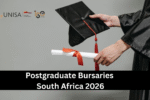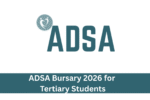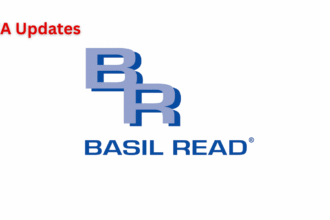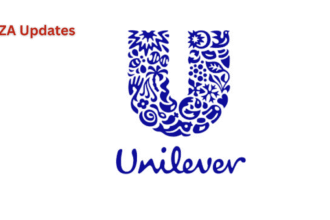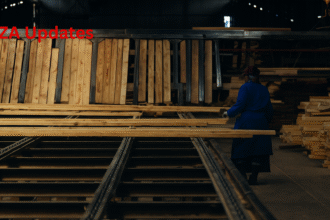2025 SA Bursaries Now Fully Funded – Free Tuition and Monthly Allowances for South African Students. In a landmark move that has sent waves of excitement across the country, the South African government has announced that 2025 SA bursaries will be fully funded, ushering in a transformative era for thousands of students.
This forward-thinking initiative promises free tuition, accommodation support, and monthly allowances for eligible learners, primarily targeting those from historically disadvantaged backgrounds. It’s not just an education policy, it’s a bold investment in South Africa’s future.
The government’s vision is clear: to eliminate financial barriers to higher education and create a more inclusive academic environment where students are supported not only with funding but also with living expenses. This pivotal step is aligned with broader national goals aimed at driving socioeconomic development and creating a skilled, employable youth.
What the Fully Funded 2025 Bursary Program Includes
The 2025 SA bursary program is more than just a tuition waiver—it’s a comprehensive financial support system designed to cover every aspect of student life. Here’s what it offers:
- Free tuition at public universities and TVET colleges
- Accommodation costs fully covered
- Monthly living allowances to ease day-to-day expenses
- Support for books, transport, and essential academic materials
- A special focus on students from disadvantaged communities
By removing the financial weight that hinders so many capable learners, the program ensures that academic success is determined by merit, not money.
Who Qualifies for the 2025 SA Bursaries?
To ensure that the bursary support reaches the most deserving candidates, the eligibility criteria have been carefully outlined. Here’s what applicants need to qualify:
| Criteria | Details | Priority Level |
|---|---|---|
| South African Citizenship | Must be a SA citizen with a valid ID | High |
| Financial Need | Household income below a specified threshold | High |
| Academic Performance | Minimum academic results as per institution | Medium |
| Rural or Remote Location | Students from underdeveloped areas | Medium |
| Previously Disadvantaged Group | Historical inequality communities targeted | High |
| Online Application Compliance | Use of official application portals | Medium |
The bursary prioritises low-income families, first-generation university-goers, and students from rural and township schools. A means test will verify financial status, and students must also submit recent academic transcripts, proof of residence, and ID documents.
How to Apply for the 2025 SA Bursaries
The government has simplified the application process to make it easy and accessible for all. Follow these steps to apply:
- Prepare Your Documents:Include your ID, proof of income, academic records, and residence verification.
- Visit the Official Bursary Portal: Submit your application online via the Department of Higher Education and Training (DHET) or relevant funding scheme websites.
- Wait for Review: Applications are reviewed by a dedicated selection committee.
- Get Notified: Successful applicants will receive notifications via email or SMS.
- Funds Disbursed: Bursary funds are paid directly to institutions and monthly allowances transferred to the student’s account.
- Stay Eligible: Continued support is subject to performance reviews and verification checks.
Transformative Impact on South African Education
The ripple effect of this initiative will be felt throughout the higher education ecosystem. Some of the key expected outcomes include:
- Higher enrollment rates at public institutions
- Improved graduation rates and academic performance
- A more diverse and inclusive university environment
- Reduction in dropout rates due to financial stress
- Development of a well-educated, future-ready workforce
By removing financial stress, students can focus purely on academics. This means better grades, stronger mental health, and higher retention across all levels of study.
Addressing Regional Needs Across South Africa
The bursary distribution is tailored to regional disparities, ensuring that both urban and rural students benefit equitably:
- Rural Outreach: Information campaigns and workshops in under-resourced areas
- Urban Load Management: Digital application processes to streamline high volumes in cities
- Provincial Adjustments: Resource allocation based on local education needs
This strategy ensures equal access to fully funded education whether you’re from Limpopo or Gauteng.
Sustainability and Transparency
No program is without challenges, and the 2025 bursary rollout is no exception. Among the top concerns:
Equitable Distribution
- Transparent selection processes
- Regular community audits
- Appeals and support mechanisms
Budget Constraints
- Government’s multi-billion rand allocation
- Public-private partnerships to enhance funding pools
- Collaboration with NGOs and international donors
Monitoring and Evaluation
- Real-time tracking systems
- Continuous feedback from students and institutions
- Periodic public reporting to ensure accountability
The emphasis is on long-term sustainability, efficient resource management, and financial transparency.
Future of Bursary Funding in South Africa
Looking ahead, the bursary program is expected to expand and adapt to meet the evolving demands of education. Plans include:
| Area | Future Action |
|---|---|
| Program Expansion | Inclusion of more faculties and TVET opportunities |
| Stakeholder Involvement | Stronger ties with private sector and communities |
| Technological Integration | Smarter application and tracking tools |
| Skills Development | Link bursaries to job-readiness programmes |
| Long-Term Evaluation | Refine policies based on real-time outcomes |
With consistent support and innovation, South Africa’s bursary landscape will continue to grow, fostering a culture of learning, progress, and empowerment.
Conclusion
The launch of the fully funded 2025 SA bursaries is a historic turning point in South African education. With free tuition, monthly allowances, and broad access for disadvantaged students, the program is set to break cycles of poverty and pave the way for a brighter, more equitable future.





